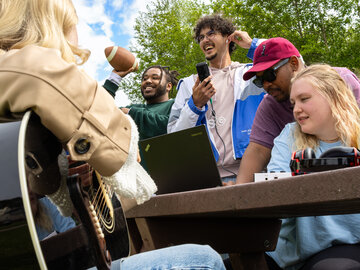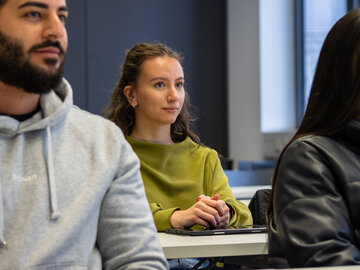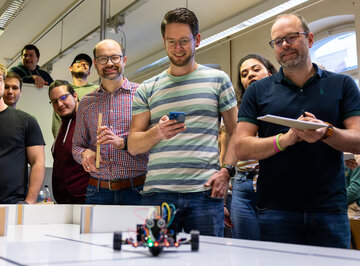

Find out what's new
Read the HFU News
Experience something new
Experience HFU Events
"Find out more about the campus and life at our three locations in Furtwangen, Schwenningen and Tuttlingen."
Check out the HFU campuses
Blossom with the right job
Careers at HFU
School pupils can attend 4-day taster courses to try out the courses they're interested in.
Get a taste of university life now
